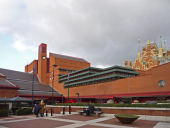
In a recent development, UK inflation has experienced a substantial decline, reaching its lowest point in the past two years, primarily attributed to the reduction in energy prices. The inflation
rate, gauging the pace of consumer price increases, descended to 4.6% in the year leading up to October, marking a noteworthy decrease from the 6.7% recorded the preceding month.
This decline not only fulfills the government's commitment to halve inflation by the year's end but also underscores the impact of stabilizing energy prices. However, it is crucial to note that the credit attributed to ministers for this decline is tempered by the role of settling energy prices.
Economists posit that the principal factor contributing to the reduction from the peak of 11.1% in October 2022 is the drop in the energy price cap this month, which constrains what suppliers can charge consumers for each unit of energy. Additionally, the decision by the Bank of England to raise interest rates, aimed at tempering demand in the UK economy and curbing price hikes, has played a role. Currently standing at 5.25%, a 15-year high, these rates have elevated mortgage costs while simultaneously boosting savings rates.
Grant Fitzner, Chief Economist at the Office for National Statistics (ONS), attributes the decline in inflation to a "small reduction in the energy price cap this year" following last year's steep increase in energy costs. While food prices remained relatively stable last month, hotel prices experienced a decline.
Despite indications of a potential alleviation in the cost of living, the relief may not be universally felt, especially concerning energy bills. Although gas and electricity prices are lower than the previous year, most households are anticipated to pay more for energy this winter due to the absence of government support for bills.
The decrease in inflation does not necessarily translate to a reduction in the cost of most goods and services; rather, it signifies a deceleration in the rate of price increases.
James Smith, Research Director at the Resolution Foundation, cautions that the "cost-of-living crisis is far from over," emphasizing the enduring impact of significantly higher prices over the past two years. The surge of 49% in energy costs and a 28% rise in food prices, compared to a 14% increase in average earnings during this period, underscores the challenges faced by many households.
Despite the October drop, the UK is still some distance away from meeting the Bank of England's 2% inflation target, and policymakers suggest that interest rates are unlikely to be reduced in the near future. The Office for National Statistics notes that energy and food prices remain higher than they were two years ago, with the possibility of the upcoming energy price cap announcement indicating a potential rise in energy prices for the next year.
Furthermore, the UK's inflation rate remains elevated compared to other countries, including the US, France, and Germany. The responses from political figures reflect a range of perspectives, with the government highlighting disciplined fiscal measures, while critics argue that the current circumstances warrant caution rather than celebration.



































